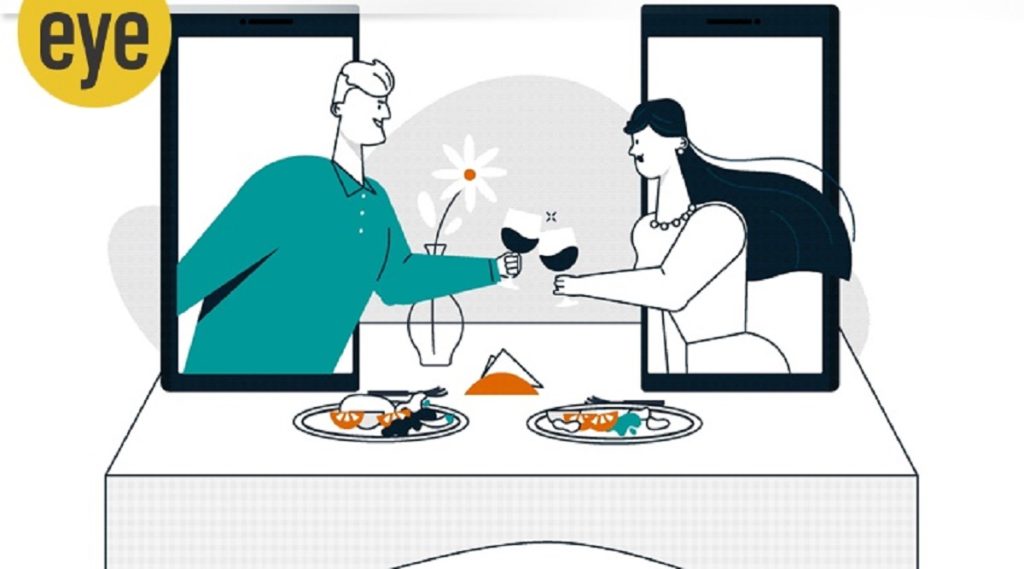Adultery vs Deadly Virus: Digital Dilemma during COVID-19 Pandemic
By – Avni Gupta
When a massive plight strikes, it tends to either unite people together, or split them up apart. Lockdown due to COVID-19 has experienced a wave of “turbo relationships” – with many couples reaching milestones such as moving in together or getting engaged. However, it has also carved serious scars in relationships.
Pandemic situation has experienced cardinal stress in people to surface with robustness. Being locked at homes, their means to escape have been blocked. Psychologists K. Gordon and E. Mitchel affirmed that social, emotional, and financial impacts due to coronavirus have paved the way for virtual infidelity. They claim that an increase in stress may act as a contributing factor to negative perceptions regarding their partner and relationship.
Online pornography, dating sites, and erotic technologies have gained immense popularity within the past few months. Multiple reports convey an increase in the user database of dating applications like Bumble and Tinder. Stressed people find solace in virtual affairs, especially those who are experiencing trouble in their current relationships. People are also rekindling with their ex-lovers despite being in committed relationships. Due to the high dependency of emotional connect on social media, new forms of crimes have emerged. Women, middle-aged people, and individuals with anxiety, impulsiveness, and susceptibility to relational addiction are at high risk of becoming victims to the scams.

INTERNET INFIDELITY
In the United States, a website which serves those looking for an affair, Ashley Madison, has seen an upsurge of new sign-ups every day. As compared to last year, 2,500 more sign-ups have been reported this year. In a recent study, the website found 30 percent of female users are now engaging in cybersex with their affair partners.
In our country, residents of cosmopolitan cities are found most open to committing infidelity. The sharpest rise in the number came from the largest and most cosmopolitan Indian cities – Bengaluru, Mumbai, Kolkata and Delhi NCR, Pune, and Chennai.
The internet is responsible for opening up numerous avenues of adultery in different forms. When it comes to virtual cheating, many people choose to not justify the act to their respective partners, and even refuse to term it as infidelity. “Is it really cheating if I’m not having sex with the person?” they say.
Psychology experts describe infidelity to literally mean “taking sexual energy, of any variety, that will compromise integrity, outside of a committed relationship, and pretending it will not affect their partner or their relationship, as long as it remains hidden.” The belief that until undiscovered or no development of physical contact makes internet infidelity widely followed and successful.

DIVORCE DOWNPOUR
Subscriptions of an extra-marital dating app, Gleeden, have experienced a 70 per cent hike in recent times. Its community in India has swelled by 734% since decriminalisation of infidelity and has crossed 10 lakh users during COVID times.
Around the world, divorce rates are increasing amongst married couples. China experienced a sudden increase in divorce filings as the pandemic hit the nation. Law firms have claimed to be swamped with divorce filings. A mattress store manager has claimed that customers have been rushing to the store during a pandemic. About 25 percent of the people bought new mattresses owing to divorce, break-up, or separation.

Humans, like elephants and chimpanzees, are social animals – they bear a need to communicate and connect with others. The power of intimacy and touch is crucial for a human since the time of her/his birth. Deprivation of touch during social distancing could be held accountable for failing relationships. Hence, re-establishing meaningful communication with one’s partner would set an apt vibe for the relationship.
Author

